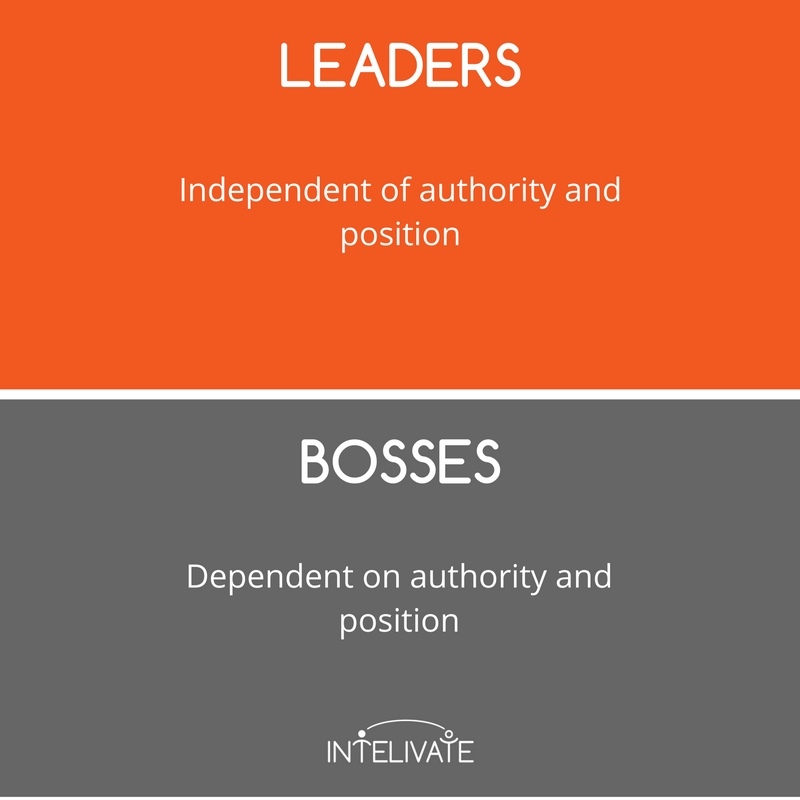Take Intelivate’s 10-question leadership style assessment to learn if your style is participative or autocratic leadership. Is one better than the other?
When you are in a coaching or teaching situation, do you practice more participative leadership or are you more inclined to take an authoritarian leadership approach? Complete this quick, ten question leadership style questionnaire to learn your natural approach.
At the end of the quiz, find out more about participative and authoritarian leadership and some tips for applying either leadership style.
Leadership Style Quiz Tip:
Take the leadership style assessment as quickly as possible. The results won’t benefit you if think about your answers – especially what is ‘right’ or ‘wrong.’ You heard it first in the third grade – there are no right or wrong answers.
Let’s do this!
Take the Leadership Style Questionnaire: Participative or Authoritarian Leadership?
I prefer to develop a solution before presenting it to my team. I usually won't change it unless there is a compelling reason.
When coaching team members, I like to focus on their goals and match those to the business.
Before a coaching session, I outline everything the team member should know and try and stick to that.
During a coaching session, I tend to ask a lot of questions (more than are asked to me).
For a coaching session, I'd prefer to focus on content as opposed to the session structure.
When teaching someone, I prefer to set the agenda.
My coaching approach is usually the same. I rarely need to vary it.
When coaching or teaching, I learn something new each time.
When coaching or developing someone, I like to solve the problems for them.
For performance issues, I prefer team members to develop their own action plans.


Share your Results:
What is Participative Leadership?
Participative leadership is collaborative in nature. This leadership style uses consistent feedback to make mutual agreements, decisions, and solutions.
- This leadership style allows team members to play a significant, defining role in their developmental objectives/goals.
- Team members not only own but also develop their plans.
- The participative leadership approach then comes to a compromise of matching those goals to the business.
- The participative leadership style follows the lead of the team members and helps them focus on what they want to achieve, balanced with organizational needs.
- Participative leaders do not see themselves as having all the answers or being the expert in everything.
- Participative leaders ask many questions to increase the team member’s self-awareness, confidence, and ownership in the business.
- Participative leadership focuses on longer-term behavior changes and performance objectives.
Participative Leadership Considerations
This leadership style encourages self-sufficiency and creativity. The success of participative leadership is both situational and right-hire dependent.
The participative leadership style may not be structured enough for new team members or those consistently struggling to meet performance standards.
What is Authoritarian Leadership?
This leadership style is a nearly polar opposite of participative leadership. Authoritarian leadership is reliant on one individual for decision-making and takes little input from team members.
- Authoritarian leadership focuses on the task objective set by the leader.
- The authoritarian leadership style provides clear step-by-step instructions, with little option for variation or creativity.
- Authoritarian leaders focus on the details, rather than the longer-term strategy or vision.
- Authoritarian leadership is best for short-term or quick behavior and performance changes. However, because team members are dependent on the authoritarian leader’s detailed direction, the performance changes are usually not sustainable.
- Authoritarian leadership does not encourage self-sufficiency and creativity.
- This leadership style should NOT be used for longer-term team performance, as wider developmental needs are ignored or become secondary.
Although authoritarian leadership might appear ‘wrong,’ it is a critical leadership style for many situations, including:
- When confidence or competence is low. This is especially useful for when there is limited time to reach certain performance goals or at the start of rebuilding trust.
- ‘Emergency’ situations – when there is a crisis in the business and things just need to get done and done right. When used in these situations, this does not mean you are a micromanager.
Leadership Style Quiz: Is One Style Better?
As indicated, there are appropriate uses for both participative leadership and authoritarian leadership styles. The most practical approach is to use the method that is most effective based on the situation and the team member.
There are times when things just need to get done, and I don’t need or want to ‘talk it through’ – just do what I say – when I say it and how I say to do it. Do I love the authoritarian leadership style approach? No. It’s necessary sometimes, though.
For longer-term growth and development, use a participative leadership style. Word of warning – it takes much more patience as a leader. However, the growth and performance benefits are greater and more sustainable for the long-term. A focus on long-term growth is one of the key characteristics of a leader.
Were you surprised by the results of your leadership style questionnaire? Remember, these are just 10 questions to gauge the leadership style that you naturally gravitate towards. On any given day, you are likely juggling both of them.
Like this leadership style quiz? Be sure to subscribe to get more quizzes and tips like this one!
Related Solutions for Help With Your Leadership Style or Team Performance.
Kris Fannin
Kris Fannin is a passionate change agent in workforce transformation. For more than 25 years, he's had the privilege of partnering with dozens of client organizations and leading hundreds of teams to become powerful influencers.
"Your legacy will be defined by the passion and impact of the people you influence. What do you want your legacy to be?"





